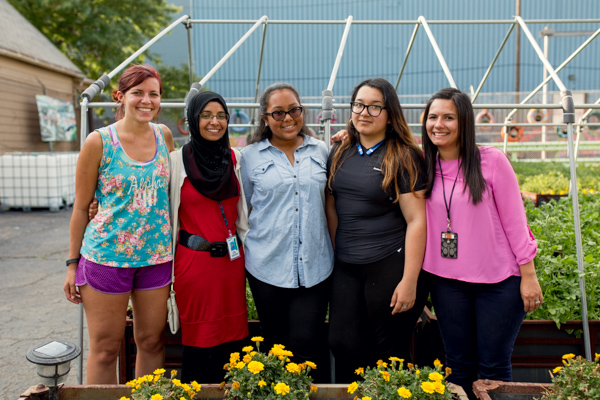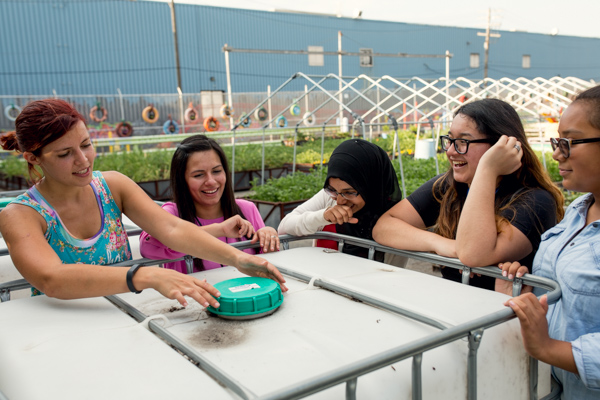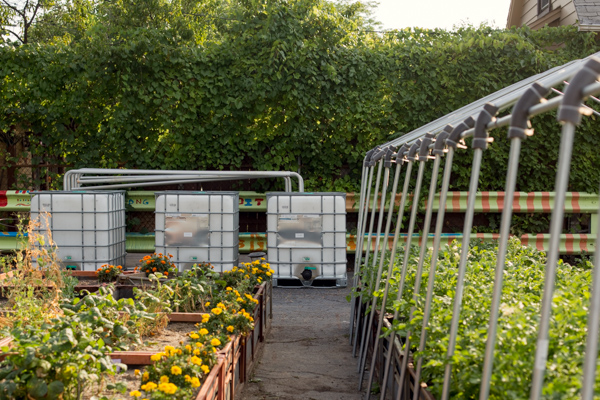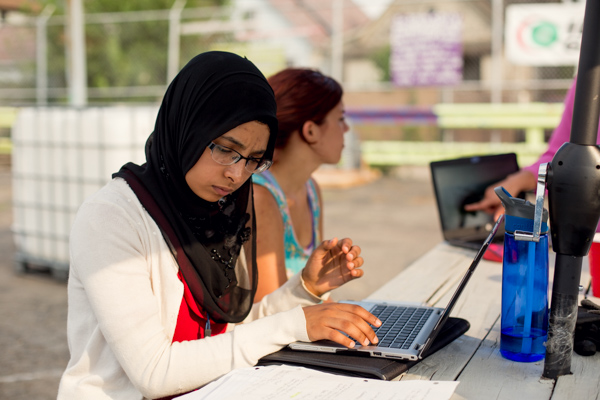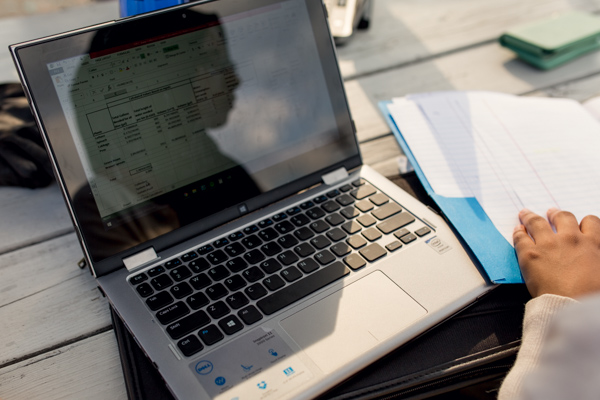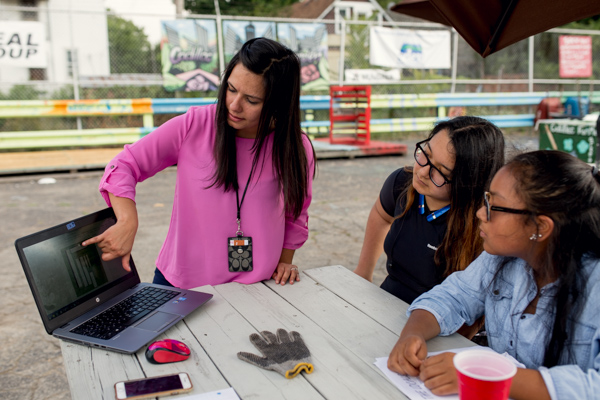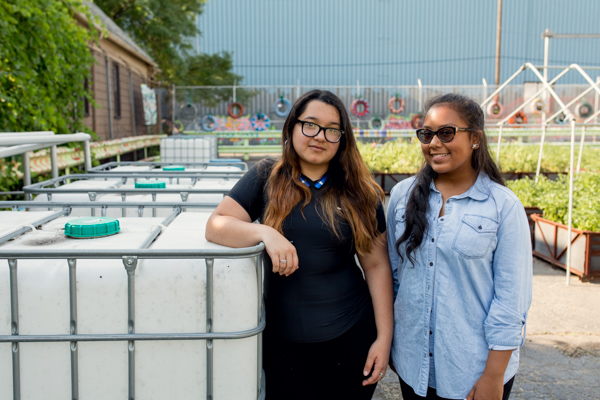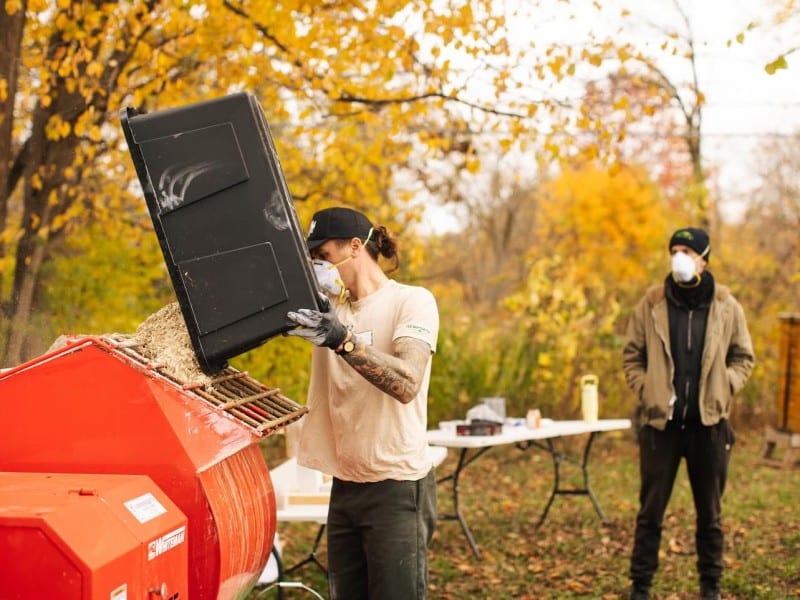This all-girls robotics team wins competitions and minds
Participation in Mercy Midnight Storm, an all-girls robotics and science team in Southwest Detroit, has been a truly empowering experience for all its members.
Although it’s sweltering outside, Kandis Chow, 15, sits comfortably in the air conditioned basement of Urban Neighborhood Initiatives in Southwest Detroit. While using a laptop, the tenth grader at Western International High School alternates between staring intently at the screen, talking about Pokemon Go, and Snapchatting with friends.
While it may at first appear to be a typical teenage scene, Chow is actually mapping out a virtual replica of Cadillac Urban Garden on computer-aided drafting (CAD) software—plus occasionally indulging in digital distraction. Chow is a member of Team 5915 Mercy Midnight Storm, an all-girls robotics and science team, and the group is working to build a water collection system for the urban garden.
“I always want to come,” says Chow of these bi-weekly meetings with her teammates and mentors. “I’m just excited about what we’re going to do each day, what we’re going to try to accomplish, and what we’re learning.”
Mercy Midnight has taken on this project as part of an off-season competition with four other robotics teams in the area. Between the water collection project and constructing a robot earlier in the year, participation in Mercy Midnight has been an empowering experience for all its members.
The girls are supervised by “chief engineer” Keysha Camps, who is the assistant program engineering manager for Full Size Trucks at General Motors. Camps has been with the team since its inception last summer, and, like most of her team members, had no experience in robotics prior to a few years ago. In fact, it was her colleague Joaquin Whelan who introduced Camps and some other new hires at GM to FIRST Robotics. Founded in 1989, FIRST (For Inspiration and Recognition of Science and Technology) is a nonprofit based in New Hampshire that focuses on encouraging children’s interest in the STEM (Science, Technology, Engineering, Math) fields.
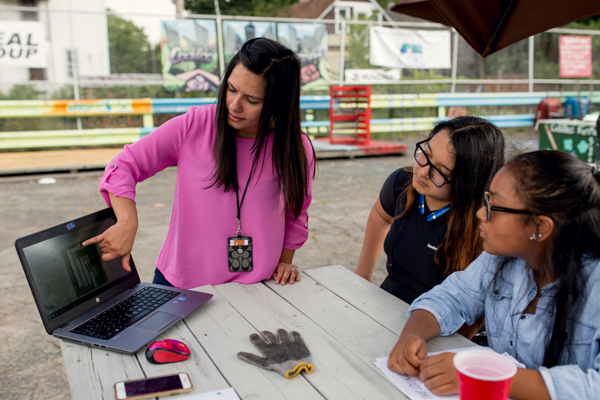
After initially acting as a mentor to the FIRST Robotics team for the Detroit Hispanic Development Corporation, Camps was asked to lead an all-girls team. “I loved it so much and was hooked. So when I was told about the opportunity to lead an all-girls team I was like, ‘Yes, totally!'”
Each one of the team members has been assigned a task for the day. 18-year old Nada Alhamdi of Dearborn is working out calculations for the water collections system. She considers the needs of different plants in the garden and how variations in rainfall could impact the water system. Stefania Meyers, 14, works on filling a spreadsheet with information and price estimates of parts they’ll need for the water system.
Meyers actually plans to using her knowledge from robotics for her career. “I think I would like to go into engineering or maybe business,” she says.
She enjoys math and science, but says that STEM classes at school feel male-dominated and thus difficult to access. Her school has a robotics team, too, but it’s comprised of all boys. Mercy Midnight allows her to pursue her interests without the added social baggage.
Denasia Robinson, 15, is an anomaly of the group. “My entire family has been in robotics in some way, so I joined because of their interest,” she says.
Even with this advantage, she’s losing interest in math and science at school, like many girls her age. “But, in general my family really helps me stay motivated by reminding me that robotics will be beneficial in the future,” she says.
Robinson’s case is part of a larger issue of women in STEM fields. While education achievement is fairly equal, the gender disparity for undergraduate STEM degrees is large, especially among women minorities. In computer science, for example, women received only 18 percent of all degrees in 2013. Considering all the well-paying jobs and career opportunities STEM education offers, it’s important that girls get equal encouragement.
Fortunately, the team is having a positive impact on its members.
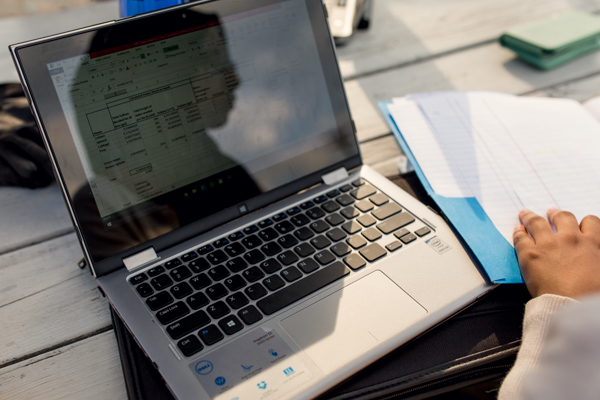
When Brianna Bryant was younger, she had no idea what she wanted to do, aside from helping to change people’s lives in a positive way. But, thanks to Mercy Midnight, her future now has a clear direction. “Because of doing robotics, I can say that I want to be a mechanical engineer, and I want to do it for the rest of my life,” Bryant says with a smile.
Camps has noticed the incredible transformation in this group of young women. “They were really shy,” she says of the first team meeting after learning about the 2016 FIRST In Michigan challenge.
Their confidence has grown, in large part, because of their success. One way FIRST advocates for STEM is by hosting robotics competitions. Each year, the requirements and specifications of what the robot is expected to do and how it can be built is different. In 2016, the organization held the Stronghold Challenge, where multiple robots form alliances to try to capture their opponent robot’s tower.
“There’s so much being thrown at you—it’s a mix of excitement and confusion,” Camps recalls.
Building a robot presents interdisciplinary challenges at every turn. The difficulty in building a functioning robot that also meets competition guidelines is an immense task.
Yet after six weeks, and a lot of teamwork, the girls built their first robot. And they did more than just present at the 2016 FIRST In Michigan competition in Southfield. Mercy Midnight won the Rookie All Star award and, at another in Centerline, was named District Event Finalists and took home the Rookie Inspiration Award.
The girls find a video they recorded during one of their wins. They take a break from their calculations to watch, relive the glory, and remember details of that day. “We were screaming when they announced that our team won. We were crying too, and other teams were congratulating us,” says Bryant.
While shepherding her team to victory was an accomplishment, Camps says another aspect of the event was even more rewarding. “At our first competition, we had a bunch of issues with the robot and the girls would jump on it after each match and fix it themselves.”
Camps gets goosebumps remembering how proud she was to see that they knew what tools to pick up, and seeing this once-shy group of girls explain their design and present to the judges.
While the team works to present their water collection system to Cadillac Urban Garden in the near future and gears up for another robotics season, Camps remarks on her connection to these young women. “They are all minorities, and I’m a minority as well,” she says. “I want them to know they can do anything. And that’s exactly what they’re showing everyone in Detroit.”
This piece is part of a series highlighting the role science plays in Detroit. It is supported by the Michigan Science Center.
All photos by Nick Hagen.
